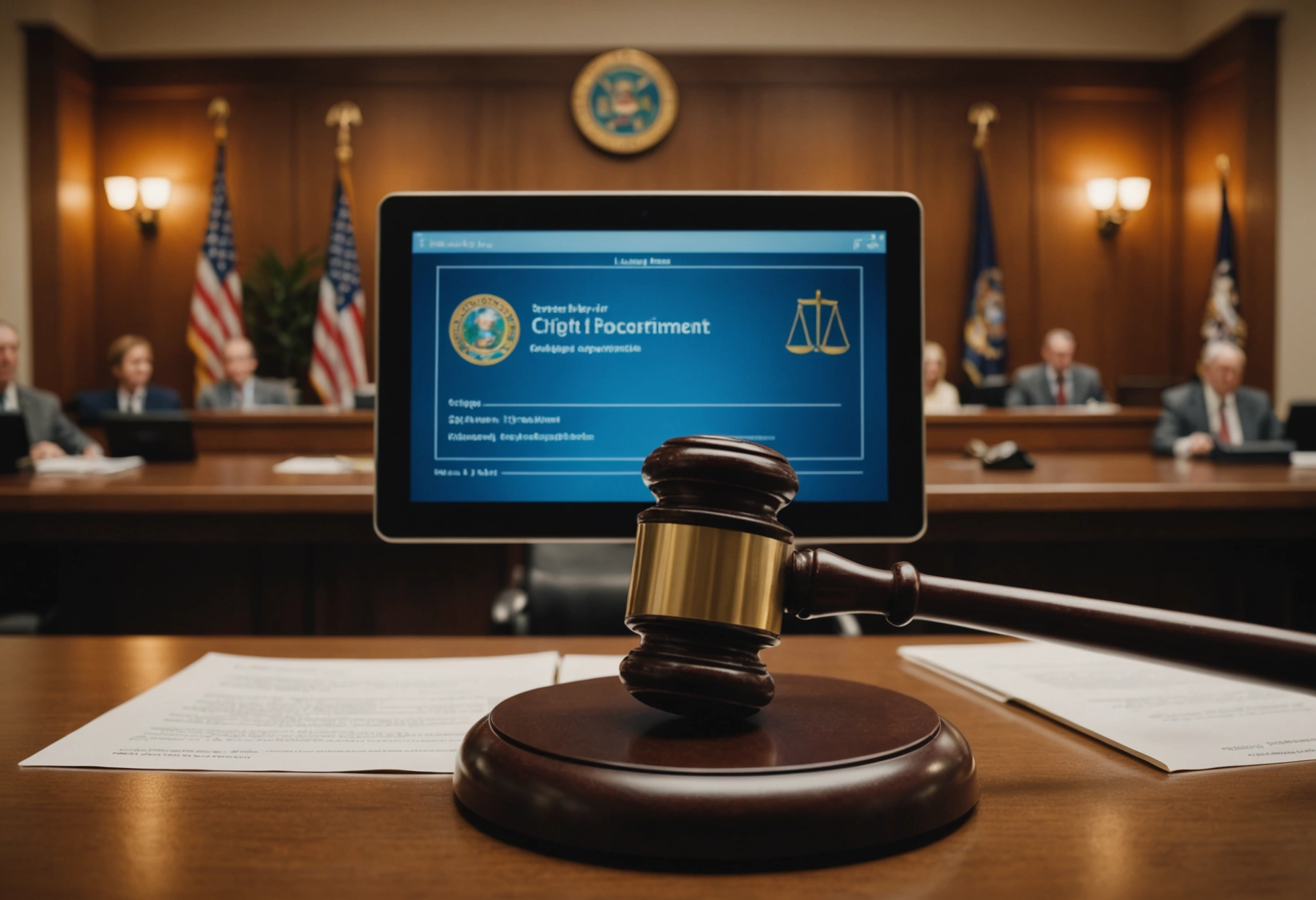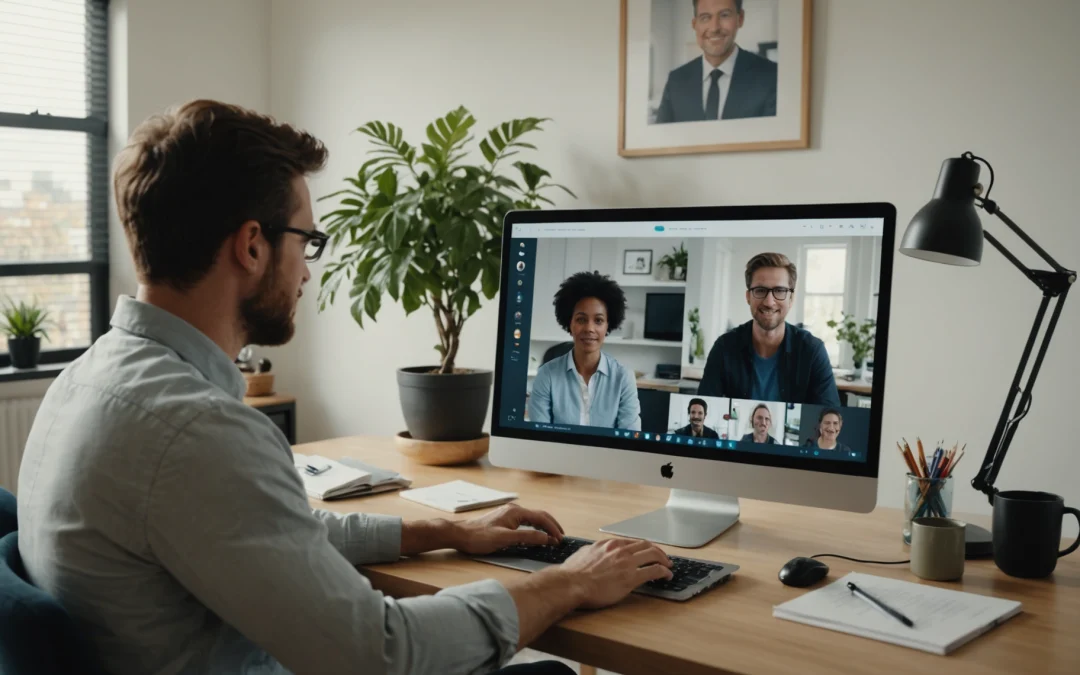The Evolving Landscape of Online Mediation: Reshaping Dispute Resolution in Florida
The digital revolution is leaving no stone unturned, and the world of dispute resolution is no exception. In Florida, the adoption and evolution of online mediation are not only transforming how conflicts are settled but also broadening access to justice. As the Sunshine State continues to be a hotbed for commercial and civil disputes, the move toward digital mediation platforms signifies a paradigm shift that legal professionals, businesses, and individuals must understand. This article delves into the multifaceted impact of online mediation, the technology driving these changes, and what the future holds for dispute resolution in Florida.
From the rise of virtual courtrooms to the increasing sophistication of mediation technologies, online mediation is rapidly becoming the preferred mode for resolving disputes efficiently and cost-effectively. This trend is particularly relevant in Florida, where diverse populations and booming industries create a dynamic environment ripe for innovation in conflict resolution.
Understanding Online Mediation in the Florida Context
Online mediation is a process where parties in dispute use digital platforms to engage with a neutral third-party mediator who facilitates negotiation and resolution. Unlike traditional in-person mediation, online mediation leverages videoconferencing, secure messaging, and document-sharing tools, making the process more accessible and flexible.
Florida, known for its proactive approach to integrating technology in law, has been at the forefront of this transition. The Florida Courts’ Online Dispute Resolution (ODR) program exemplifies how state institutions are embracing digital tools to streamline and democratize the mediation process. This initiative has set a precedent for other states, showing how technology can be leveraged to reduce backlogs, minimize costs, and improve user satisfaction.
Key Drivers of the Shift Toward Online Mediation

Several factors are fueling the rapid adoption of online mediation in Florida. The COVID-19 pandemic was an undeniable catalyst, forcing courts and mediators to adapt quickly to remote work. However, the shift is powered by more than just necessity. The following drivers are shaping the landscape:
- Technological Advancements: Secure video conferencing, encrypted document sharing, and AI-powered scheduling tools have made online mediation both practical and secure.
- Increased Accessibility: Parties no longer need to travel long distances or coordinate complex schedules, making mediation accessible to people in rural and underserved areas.
- Cost Efficiency: Virtual mediation reduces overhead costs, making it a more affordable option for both clients and professionals.
- Flexibility and Convenience: The ability to schedule sessions outside of traditional working hours and participate from any location enhances convenience for all parties involved.
These drivers reflect a broader trend in the legal industry. According to a comprehensive report by the American Bar Association’s Dispute Resolution Section, online mediation is not just a temporary fix but a permanent feature of modern legal practice.
Benefits of Online Mediation for Floridian Businesses and Individuals
The advantages of online mediation extend far beyond convenience. For businesses operating in Florida’s vibrant economy, time is money. Online mediation accelerates the resolution process, allowing companies to focus on their operations rather than protracted legal battles. Individuals benefit from the privacy and comfort of participating from their own homes, reducing the intimidation associated with legal proceedings.
Additionally, online mediation encourages a more balanced power dynamic. In traditional settings, factors such as physical presence and courtroom formality can inadvertently influence negotiations. Digital platforms can level the playing field by enabling parties to communicate on equal terms, sometimes even using asynchronous communication tools to allow thoughtful responses rather than pressured, real-time replies.
Families navigating divorce or child custody issues also find online mediation less adversarial. The virtual format often reduces emotional tension, making it easier to reach agreements focused on the best interests of children or shared assets. The Florida Courts’ Family Courts Self-Help Information highlights these advantages, noting that remote proceedings can enhance engagement and satisfaction with outcomes.

Technologies Powering Online Mediation
The backbone of online mediation is its technology stack. At the forefront are secure, user-friendly platforms that enable real-time communication, document exchange, and case management. Popular solutions include Zoom, Microsoft Teams, and specialized platforms like Modria and Matterhorn, each offering tailored features for mediators and participants.
Security is a top concern, especially given the sensitive nature of mediation discussions. Encryption, multi-factor authentication, and compliance with legal data protection standards like HIPAA are non-negotiable. These safeguards foster trust among users and ensure that confidential information remains protected throughout the process.
Artificial intelligence (AI) is also making inroads, automating administrative tasks such as scheduling, document verification, and even preliminary case assessment. AI-powered chatbots can answer routine questions and guide users through the mediation process, further reducing the burden on human mediators and allowing them to focus on the substantive aspects of dispute resolution.
For a deeper understanding of the role of technology in legal services, the National Law Review’s guide to remote mediation provides an in-depth look at best practices and tools for online dispute resolution.
Challenges and Limitations of Online Mediation in Florida
Despite its many advantages, online mediation is not without challenges. One of the most significant barriers is the digital divide. Not all Floridians have access to reliable internet or the necessary devices, particularly in low-income or rural communities. This can create inequities in who can participate fully in online mediation.

Another concern is the potential loss of non-verbal cues. Mediators often rely on body language, tone, and other subtle signals to gauge participants’ emotions and intentions. While video conferencing bridges some of this gap, there is still a risk that important context may be missed, potentially impacting the quality of outcomes.
Confidentiality and privacy remain paramount. While most platforms offer robust security features, technical glitches or user error can result in breaches. Mediators must be vigilant in educating participants about best practices for securing their digital environment and maintaining privacy during sessions. The New York Courts’ guide on online mediation outlines practical steps for safeguarding privacy in virtual settings.
Legal and Ethical Considerations
Online mediation introduces unique legal and ethical questions. Mediators operating in Florida must comply with both state regulations and professional standards. The Florida Supreme Court has issued guidelines on the use of technology in court-connected mediation, emphasizing requirements for informed consent, confidentiality, and competence.
Jurisdictional questions can also arise, particularly in cross-border disputes where parties may reside in different states or countries. Mediators must ensure that agreements reached online are legally binding and enforceable in Florida courts. Additionally, they must be prepared to address issues related to digital signatures, recordkeeping, and data retention in accordance with state law.
Ethically, mediators are tasked with maintaining impartiality and ensuring that technology does not inadvertently disadvantage any participant. This includes accommodating disabilities and language barriers, as well as being sensitive to the needs of those unfamiliar with digital tools. The Mediate.com overview of online mediation ethics provides further insight into the evolving norms and best practices in this area.
Impact on Florida’s Legal Community

The rise of online mediation is reshaping the roles and practices of legal professionals in Florida. Attorneys and mediators are increasingly required to develop digital literacy and adapt to new mediation protocols. Continuing legal education (CLE) programs now routinely feature modules on virtual dispute resolution, reflecting its growing importance in the profession.
Law firms are also investing in technology infrastructure to support remote mediation, from secure client portals to customized video conferencing solutions. This technological shift has the potential to create new business models, enabling firms to serve a broader client base and offer more flexible service offerings.
Judges and court administrators, for their part, are rethinking traditional workflows to accommodate hybrid models that blend in-person and online mediation. This adaptability is crucial as the legal system responds to changing public expectations and evolving regulatory frameworks.
Future Trends: What Lies Ahead for Online Mediation in Florida?
As online mediation becomes a permanent fixture in Florida’s legal landscape, several emerging trends are likely to shape its future. First, increased integration of artificial intelligence and machine learning will streamline case management and enable more sophisticated analytics, helping mediators identify patterns and predict outcomes with greater accuracy.
Second, there is a growing emphasis on user experience. Platforms are being redesigned to be more intuitive, mobile-friendly, and accessible to users with disabilities. This focus on inclusivity ensures that online mediation continues to broaden access to justice, particularly for traditionally marginalized groups.

Third, the hybrid model—combining online and in-person elements—is gaining traction. Some disputes may begin online for preliminary negotiations and move to face-to-face sessions for final resolution, offering the best of both worlds. This flexible approach is likely to become the norm, especially as the legal community continues to innovate and adapt.
Finally, ongoing research and evaluation will be critical. Academic institutions and policy think tanks are studying the long-term outcomes of online mediation, providing valuable insights into what works and what doesn’t. Resources like the Pew Charitable Trusts’ report on court technology adoption are helping shape policy and best practices for the next generation of dispute resolution.
Embracing the Digital Future of Dispute Resolution in Florida
The evolution of online mediation is fundamentally reshaping how disputes are resolved in Florida. By harnessing the power of technology, the state is making dispute resolution more accessible, efficient, and user-friendly. While challenges remain, particularly around digital equity and privacy, the overall trajectory is clear: online mediation is here to stay.
For legal professionals, businesses, and individuals alike, staying informed and adaptable is key to thriving in this new environment. As the landscape continues to evolve, Florida’s commitment to innovation in mediation will serve as a model for others, ensuring that justice remains within reach for all.
In summary, the digital transformation of mediation is not just a response to recent events but a long-term shift with profound implications for the future of law and society in Florida. By embracing these changes, the state is poised to lead the way in delivering fair, effective, and accessible dispute resolution for years to come.
Need help with How the Evolving Landscape of Online Mediation is Reshaping Dispute Resolution in Florida?

